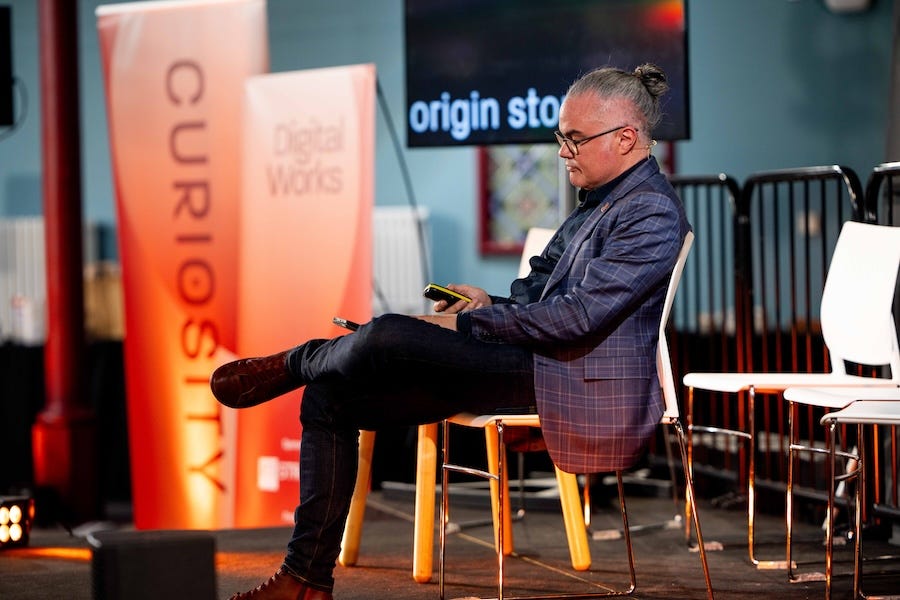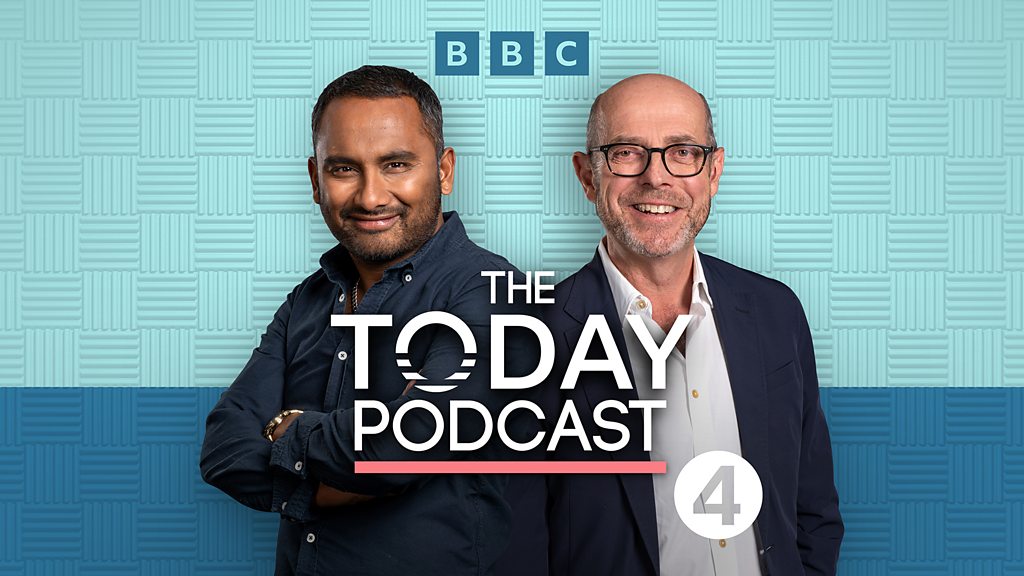Last week's best things
Seb Chan's Digital Works keynote, AI and the future of humanity, Apple's monopoly is threatened, useless AI-enabled devices, sponge cities, and seagull screeching.

I was travelling towards the end of last week and didn't manage to finish this off in time for its usual Friday slot. But in an attempt to stay in the habit, and because there are some (really) good things (really), here it is.
The need for digital imagination

Seb Chan has written up his brilliant keynote from the Digital Works Conference.
Seb closed day 1 and this written version is - as he put it - "the 12" mix of the talk with some added overdubs of hyperlinks and a few clarifications."
"The problem with this was, of course, that once the pandemic hit everyone had to play catchup and many dived into becoming a ‘niche’ broadcaster — but without the longer term investment in people or the right infrastructure to support those new activities.
Buoyed by pandemic economic bail out money, lots of new ways of delivering on their old organisational missions emerged. But these were turned out to not be sustainable — and once that bail out money was spent there has been remarkably little structural change."
Seb talked thoughtfully about the historical ways in which the cultural sector has engaged with technology, why that should (must?) change, the importance of creative leadership, and paints an inspiring vision around new, more collective and collaborative ways for cultural institutions to engage with some of the big challenges we face.
If you want to catch up with more of the Conference, you can buy a Digital Pass here and the recordings will be online from Wednesday 8th May.

AI and the future of humanity - chilling or thrilling?
A Today podcast which looks (with Stephen Fry) at AI, it's perhaps a useful primer on the actual and potential impact of AI.
Fry says "I feel the human family is sitting on a beach with their backs to the ocean while a tsunami is preparing to engulf them".
On a related note my colleague Katie recently shared this AI elections tracker which is "monitoring the way AI is being used in political campaigns, memes, and misinformation" as more than 2 billion people prepare to vote in 2024.
"We should have been thinking about deepfakes earlier."
— BBC Radio 4 Today (@BBCr4today) May 2, 2024
Dame Wendy Hall, UN adviser on AI, tells @bbcnickrobinson and @amolrajan that it may now be too late to prevent interference in coming elections.
The Today Podcast: AI and the future of humanity - chilling or thrilling?


The walls of Apple’s garden are tumbling down
"The tactics are different, but Apple’s situation now smacks of Microsoft’s in the ’90s."
A good read in The Verge about the strategic approach Apple has pursued over the last two decades, and why (and how) that is now coming under threat.
/cdn.vox-cdn.com/uploads/chorus_asset/file/25419756/247094_When_the_walls_of_Apple_s_garden_came_tumbling_down_MWares.jpg)
I Witnessed the Future of AI, and It’s a Broken Toy
On perhaps a less society-shredding note than the podcast I linked to above, it's also interesting to look at how companies are trying to launch AI-enabled consumer-focused devices.
Here's a frank review of the experience Caroline Mimbs Nyce had with the Rabbit R1.
"One of the big selling points of the R1 is that it supposedly runs something called a large action model, or LAM—a spin on the phrase large language model, which is the technology powering recent chatbots. Whereas ChatGPT can answer questions and draft you a mediocre essay, the R1 can, in theory, complete actions that you might take on different apps (Venmo-ing your friend $20, for example)."
Despite lots of buzz and hype, the reality of the device is...disappointing to say the least
"The problem is, none of this is actually real. At least not yet. As with so many AI products, the R1 is fueled more by hype than by a persuasive use case. (So many of its functions could, after all, be done on a smartphone.) Back in February, Lyu said the Rabbit was training its model on 800 apps. This week, it launched with the ability to use just four: Spotify, DoorDash, Uber, and Midjourney (a popular AI art generator). The company says LAM is in “very early stages.”"
Caroline summarises things with "the R1 launching unfinished and useless is actually exactly what the AI boom is all about. Finding — and automating — new ways to get people to pay for worse versions of what they already have."
YouTuber, Marques Brownlee has also labelled the R1 "barely reviewable"
NEW VIDEO - Rabbit R1: Barely Reviewablehttps://t.co/CqwXs5m1Ia
— Marques Brownlee (@MKBHD) April 30, 2024
This is the pinnacle of a trend that's been annoying for years: Delivering barely finished products to win a "race" and then continuing to build them after charging full price. Games, phones, cars, now AI in a box pic.twitter.com/WutKQeo2mp

‘On every roof something is possible’: how sponge cities could change the way we handle rain
Urban design is a really interesting area, and I've been to lots of talks over the years about the 'future of cities', so I was intrigued to read this article in the Guardian about 'sponge cities' (something that has been pioneered in China by landscape architect, Kongjian Yu over the last 10-15 years), and specifically the role that roofs (rooves?) can play.
"The city of tomorrow, then, isn’t the concrete-smothered metropolis of science fiction, but an increasingly green and spongey landscape that can be squeezed in times of need."

9-year-old boy wins seagull screeching competition
The video delivers exactly what it promises.
A boy from the UK won a Belgian seagull screeching competition (read more about the competition here).
The noise he can make is...very...impressive?





